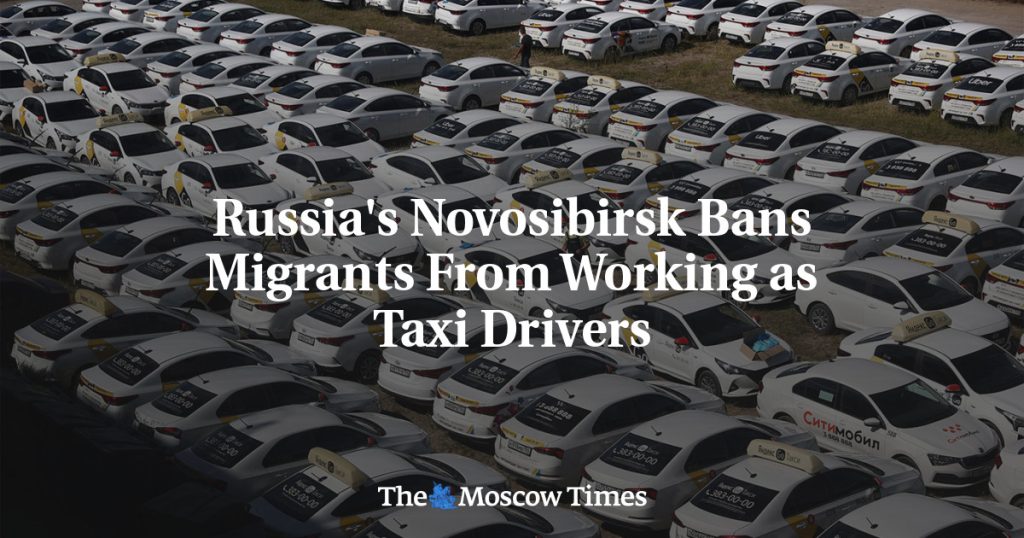The Novosibirsk region in Russia recently implemented a ban on migrants from working as taxi drivers and selling beverages and tobacco. This decision, signed by Governor Andrei Travnikov, comes in response to mounting pressure on foreign workers in Russia, particularly those from Central Asian countries, following a deadly concert hall attack outside Moscow involving suspects from Tajikistan. The decree requires companies in Novosibirsk to dismiss migrant workers in these specific professions within 60 days.
In addition to Novosibirsk, the Novgorod region in Central Russia also imposed a ban on migrants working as taxi drivers and selling tobacco and beverages shortly after the concert hall attack. Prior to this incident, restrictions on migrants working in certain professions were already in place in nine Russian regions. Since 2015, regional authorities in Russia have been granted the power to ban foreign workers for up to one year in order to regulate local labor markets and give priority to Russian citizens for employment.
The decision to ban migrant workers from certain professions in Novosibirsk and other regions highlights the growing concerns around foreign workers in Russia. With the recent attack involving suspects from Tajikistan, there is increased scrutiny on migrants from Central Asian countries. The ban on taxi drivers and sellers of tobacco and beverages is seen as a way to address these concerns and prioritize employment opportunities for Russian citizens.
Governor Andrei Travnikov’s decree in the Novosibirsk region reflects a broader trend in Russia of limiting the employment opportunities available to migrant workers. By restricting migrants from working in specific professions, regional authorities are aiming to regulate the labor market in favor of Russian citizens. This move aligns with the government’s efforts since 2015 to grant regions the authority to ban foreign workers as a means of managing employment dynamics at the local level.
The ban on migrant workers in Novosibirsk and Novgorod regions is part of a larger strategy to address security concerns in the aftermath of the concert hall attack outside Moscow. The involvement of suspects from Tajikistan has heightened tensions around foreign workers in Russia, particularly those from Central Asian countries. By prohibiting migrants from specific professions, authorities hope to address public safety concerns and prioritize the employment of Russian citizens in these key sectors.
Overall, the ban on migrant workers in Novosibirsk and Novgorod regions reflects the ongoing challenges related to immigration and employment in Russia. As regional authorities implement restrictions on foreign workers in certain professions, questions arise about the impact on migrants’ livelihoods and the overall labor market. This decision also underscores the broader issue of security concerns and the government’s efforts to address these challenges by regulating the employment of migrant workers in the country.


